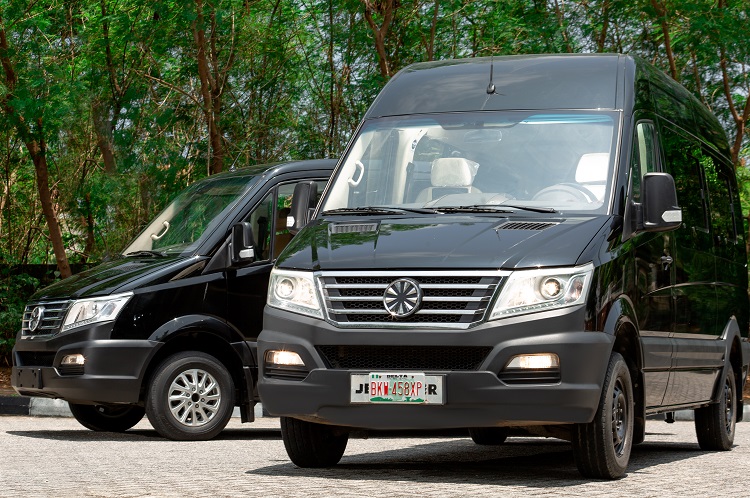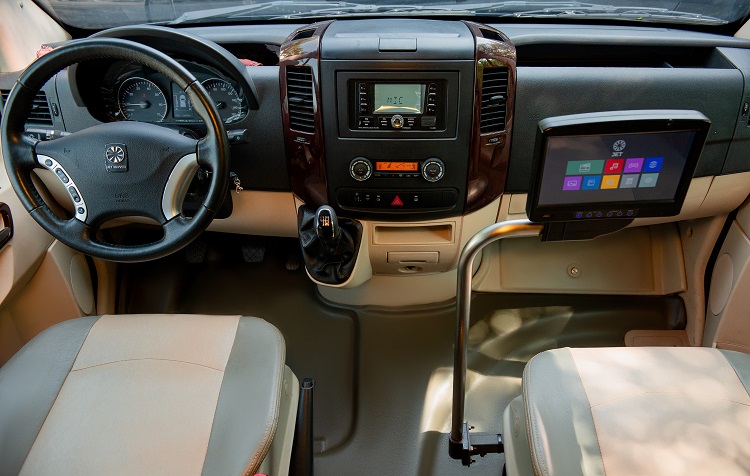Africa’s automobile space holds a lot of potentials but remains plagued by a host of challenges.
For one, African countries are the leading importers of used vehicles. Such is the over-reliance on imports that Africa almost feels like the dumping site for used vehicles.
According to Deloitte Africa Automotive Insights, between 80 – 90% of vehicles imported to Nigeria, Kenya and Ethiopia are used. A quarter of the vehicles shipped into Nigeria are almost two decades old.
Of 54 countries in Africa, only Egypt, South Africa and Sudan have entirely banned the importation of used cars.
To make matters worse, these cars usually come with petrol or diesel-powered internal combustion engines (ICEs) which contribute to carbon pollution and global warming.


A report by the United States Department of Energy indicates that one gallon of petrol produces 9.07 kg of carbon (IV) oxide during complete combustion. This translates to between 5,400kg and 8,000kg of greenhouse gases emitted by a typical vehicle in one year.
Moreover, automotive policies by governments have encouraged the influx of these automobiles into the continent. In Nigeria, for instance, a new clause in Nigeria’s 2021 Finance Bill proposes a reduction of import duties on foreign vehicles from 35% to 5%. Although the decision to slash import duties on vehicles could cut down transportation costs in the country, such policies further incentivise the import of fuel-powered vehicles and discourage local production.
Hence, there is a strong case for electric vehicle manufacturing and adoption in Africa. But factors such as Inhibitive automotive policies, poor funding, charging infrastructure deficit and apathy for locally made automobiles stand in the way of Africa’s electric vehicle future.


However, Nigerian auto manufacturing company, JET Motor Company (JMC) is taking giant strides to make this future a reality by producing custom-made electric vehicles with optimum specifications suited to the Nigerian and African environment.
The company has already raised $9 million from Canadian-based Africa Development Capital, Greatman Legend and several Asian investors to scale its research and development, as well as roll out its flagship electric vehicles.
Its JET Motors’ EV, Africa’s first all-electric vehicle and the JET Mover, a durable and affordable minibus are some of the company’s earliest automobiles made for the African terrain.
The current state of electric vehicle adoption in Africa is less than ideal, but there have been encouraging signs. In 2019, Cape Verde became the only African country to take a definite step to phase out petrol ICE vehicles. As stated in its national Electric Mobility Policy Charter, the country’s goal is to prohibit imports of ICE vehicles no later than 2035; this includes passenger cars, light commercial vehicles, buses, medium and heavy trucks, and two-wheelers.
Another reason for optimism is that Rwanda’s electric mobility startup, Ampersand recently raised $3.5 million to grow its fleet of electric motorbikes. The e-mobility startup currently has up to 35 drivers, with 7,000 on its waiting list. Riders prefer electric cycles because of their increased efficiency and reduced costs of operation.
Also, South Africa launched its first public electric vehicle (EV) charging station in December last year, offering it free-of-charge for the first two years to members of the public.
Remarkably, EVs are slowly taking over the automobile market globally, as major manufacturers are starting to shift away from the ICE towards producing hybrid or fully electric models. Companies leading the charge for the mainstream adoption of electric vehicles include Tesla, Faraday Future, Apple, Nikola, Uber, Volkswagen and Nigeria’s JMC. EVs are closer to being the more popular option than they were several years back.


Coming back to Africa, there still lies the faux perception that locally made EVs are inferior to foreign counterparts, but that is not the case. Perhaps this explains why in South Africa, the largest EV market on the continent, only 1,000 EVs had been purchased by 2019 – out of over 12 million vehicles on South Africa’s roads.
Nigeria’s annual locally produced vehicles, which currently stands at 14,000, pales in comparison to the overall vehicle demand of 720,000.
The low demand for locally produced vehicles has extended to EVs as well, and this has reflected in the meagre volumes sold out.
Time and again, global energy experts have maintained that the future of automobiles is electric. The Paris climate goals project that 22% of global vehicle sales will be electric by 2025, rising to 35% by 2030.
Electric cars are expected to be as cheap as fuel-powered cars in the next two decades. The International Energy Agency cites that by 2020 up to 20 million electric vehicles will ply the road, a number that is expected to go up to 70 million by 2025.
Therefore, it is timely and imperative that the likes of JET Motors Company are championing the deployment of EVs across Africa to drive the automobile industry towards a sustainable energy future.






